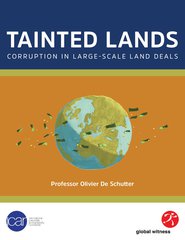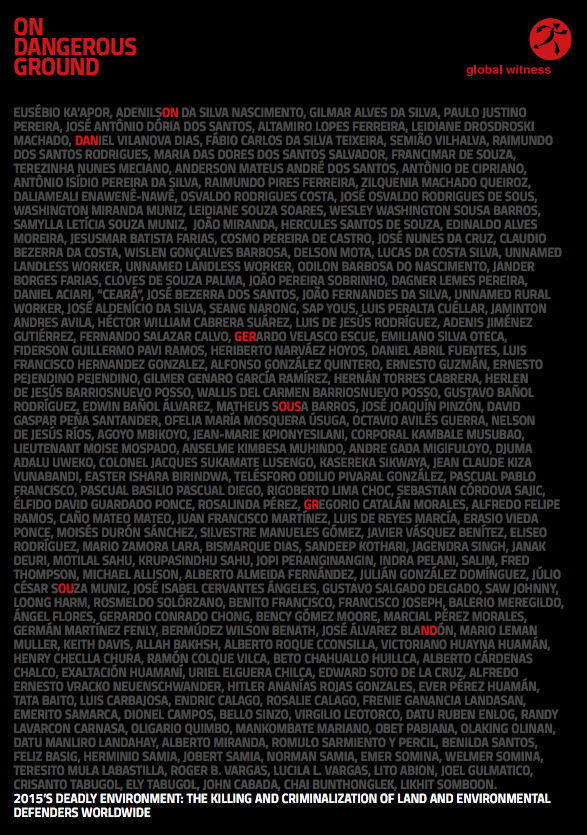Location
Global Witness exposes the hidden links between demand for natural resources, corruption, armed conflict and environmental destruction
Mission
Many of the world’s worst environmental and human rights abuses are driven by the exploitation of natural resources and corruption in the global political and economic system. Global Witness is campaigning to end this. We carry out hard-hitting investigations, expose these abuses, and campaign for change. We are independent, not-for-profit, and work with partners around the world in our fight for justice.
Vision
We want a better world -- where corruption is challenged and accountability prevails, all can thrive within the planet’s boundaries, and governments act in the public interest.
For two decades we’ve been campaigning for full transparency in the mining, logging, oil and gas sectors, so that citizens who own those resources can benefit fairly from them, now and in future.
We believe that the only way to protect peoples’ rights to land, livelihoods and a fair share of their national wealth is to demand total transparency in the resources sector, sustainable and equitable resources management, and stopping the international financial system from propping up resource-related corruption.
Members:
Resources
Displaying 11 - 15 of 45Tainted Lands: Corruption in Large-Scale Land Deals
Section I provides an overview of large-scale land deals. It assesses the trend at a global level and examines structural obstacles faced by efforts to regulate such deals. Section II focuses on corruption as a major obstacle to improving the protection of local communities and indigenous peoples whose livelihood, identities, and traditional ways of life depend on the use of local lands and natural resources. This phenomenon is largely understudied because corruption, by its very nature, is hidden and therefore poorly documented.
Tainted Lands: Corruption in Large-Scale Land Deals
Section I provides an overview of large-scale land deals. It assesses the trend at a global level and examines structural obstacles faced by efforts to regulate such deals. Section II focuses on corruption as a major obstacle to improving the protection of local communities and indigenous peoples whose livelihood, identities, and traditional ways of life depend on the use of local lands and natural resources. This phenomenon is largely understudied because corruption, by its very nature, is hidden and therefore poorly documented.
Tainted Lands: Corruption In Large-Scale Land Deals
A surge in land grabbing over the past decade has seen millions of people displaced from their homes and farmland, often violently, and pushed deeper into poverty. As demand for food, fuel and commodities increases pressure on land, companies are all too often striking deals with corrupt state officials without the consent of the people who live on it. Until now, there has been little analysis of the role that corruption plays in the transfer of land and natural resources from local communities to political and business elites.
HOSTILE TAKEOVER How Cambodia’s ruling family are pulling the strings on the economy and amassing vast personal fortunes with extreme consequences for the population.
A major investigation by Global Witness has revealed how Cambodia’s ruling family are pulling the strings on Cambodia’s economy and amassing vast personal fortunes with extreme consequences for the population. The report, Hostile Takeover, sheds light on a huge network of secret deal-making and corruption that has underpinned Hun Sen’s 30-year dictatorial reign of murder, torture and the imprisonment of his political opponents.
On Dangerous Ground
2015 was the worst year on record for killings of land and environmental defenders – people struggling to protect their land, forests and rivers
More than three people were killed a week in 2015 defending their land, forests and rivers against destructive industries. For our new report On Dangerous Ground we documented 185 killings across 16 countries – by far the highest annual death toll on record and more than double the number of journalists killed in the same period.




